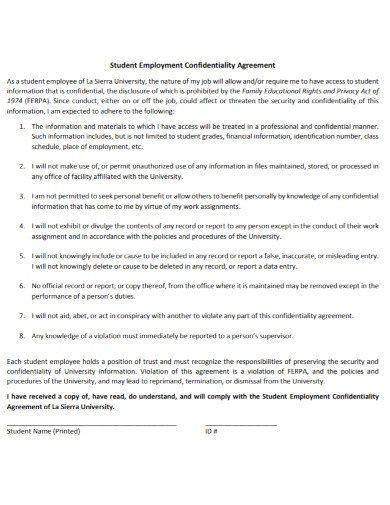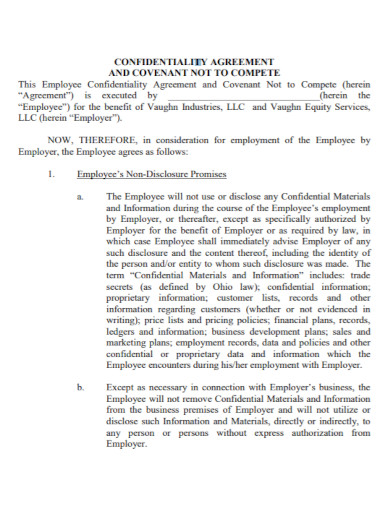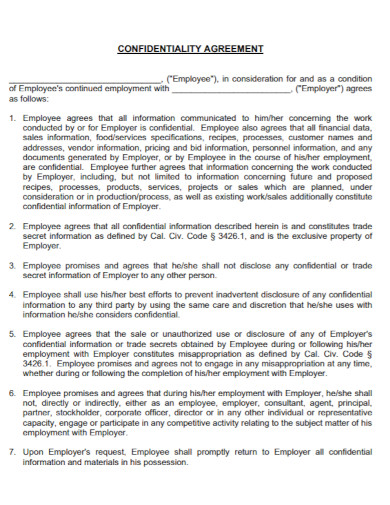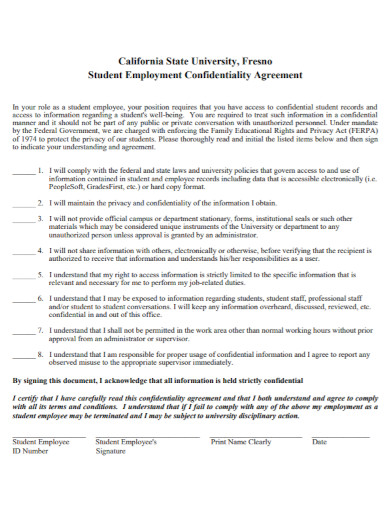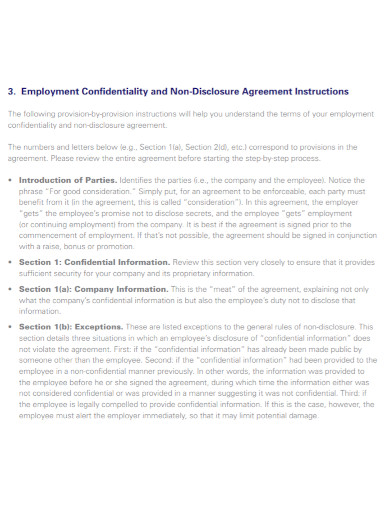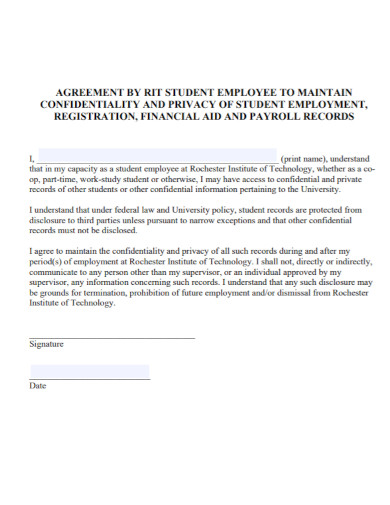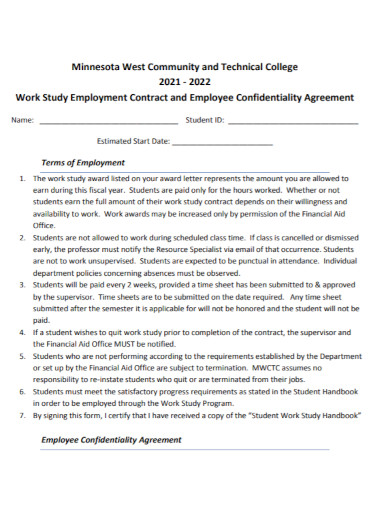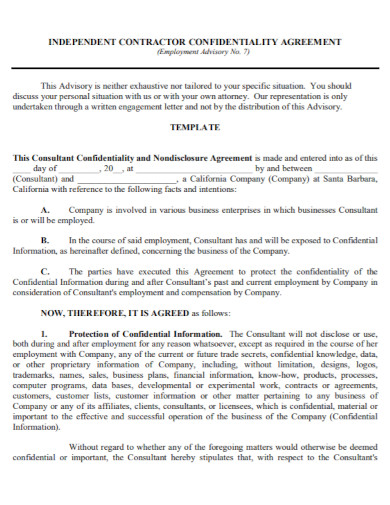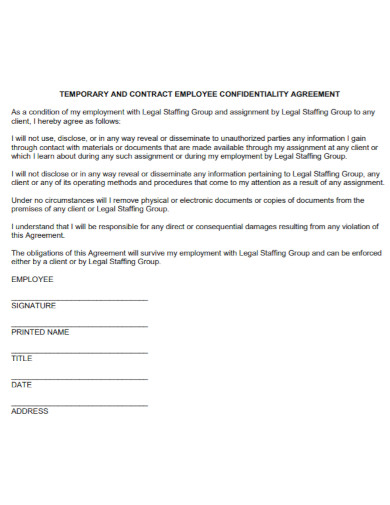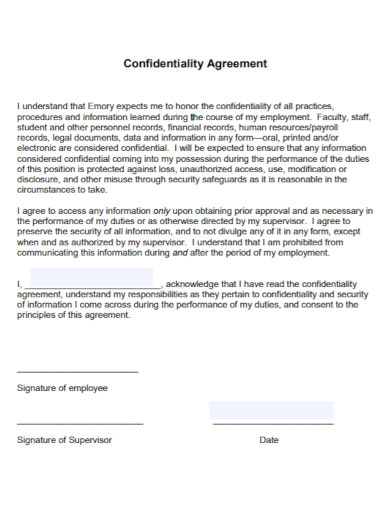10+ Employment Confidentiality Agreement Examples
Picture this: You are an employer, and you are looking for a new hire to take on the job position, you have posted in the following job ads. You noticed one employee who used to work for you, placing negative comments or negative information about your company. You remembered that it was in the agreement, that once the employee is accepted or no longer works for you, they must not say something about the company, as it is part of the policy that anything in the company must stay in the company. How do you think you would react to this? This is one of the things that a lot of people are going to find difficult to understand.
One thing that is always important to remember is an employer and an employee’s confidentiality. Often taken for granted, but it is still as important as ever. But why is it important? Why should a business or a company need their employees to sign an employment confidentiality agreement? If you want the answers to those questions, I highly suggest you check these out below now.
10+ Employment Confidentiality Agreement Examples
1. Employment Confidentiality Agreement Template
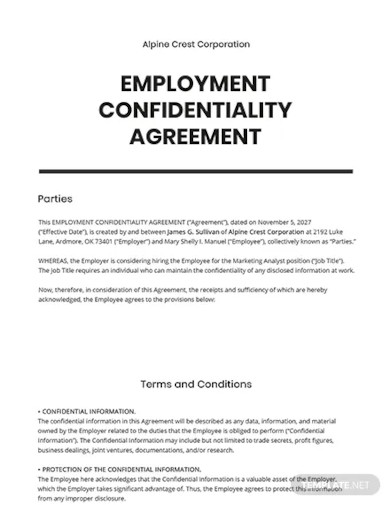
2. Student Employment Confidentiality Agreement
3. Employee Employment Confidentiality Agreement
4. Company Employment Confidentiality Agreement
5. Professional Employment Confidentiality Agreement
6. Employment Confidentiality and Non- Disclosure
Agreement
7. Standard Employment Confidentiality Agreement
8. Employment Contract Confidentiality Agreement
9. Employment Confidentiality Agreement in PDF
10. Staffing Employment Confidentiality Agreement
11. General Employment Confidentiality Agreement
What Is an Employment Confidentiality Agreement?
What is an employment confidentiality agreement? Why is this necessary for any kind of job an employee is hired for? An employment confidentiality agreement is a kind of contract that states anything that goes in the company, may it be what it is about, the things that it offers that only those working there would know, and any other important details must not be blurted out by the employee. Regardless if they have worked for the company or are still in the company. An employer expects an employee to follow this kind of agreement as this is part of their policy as well as the trust given by the employer to the employee.
As it goes, what has been discussed in the group must stay in the group and should not be spoken about to anyone who is not of the group. An employment confidentiality agreement also states that while the employee is hired by the company, any information that would be useful for the company’s competition must not be sold out for anything. This is why the agreement is useful. This is why when newly hires are present, it is always best to let them know that this is part of the policies and should be treated with care. This goes basically with any kind of job, whether in a company or a school. Even small businesses can use this kind of agreement.
How to Write an Employment Confidentiality Agreement?
The next thing to know about is what to write in an employment confidentiality agreement. As this is also quite important to know, especially if you are planning on revising your agreement or you are planning on writing one out. So here are some tips you may want to check out on how to write the agreement and what to avoid when writing it.
1. Give a Small Introduction
Before you begin with the general purpose of the agreement, write a small introduction. This is to let the employee know that what you may want to talk about or what they may be reading is something important and something that needs to be discussed.
2. Write the Acknowledgement Paragraph
The whole purpose of the employment confidentiality agreement is to let your employee acknowledge that they have read everything in the contract. That anything that may happen while they work, they would be held liable. This includes any information that other businesses may use as necessary information. The acknowledgement paragraph would be the heart of the agreement. Let your employees read and discuss it with them to make sure they understand what is going on.
3. Employee’s Name and Title
Once they have acknowledged the agreement, do not forget to let them write their full name and the title or their job position. This is important as well as the acknowledgement paragraph. As this serves as information that is necessary and useful for both parties.
4. Employer and Employee’s Signature
End your agreement with both signatures present. The signature of the employee hired and your signature as the employer. As this agreement is binding, always explain before each of you sign the agreement. When the agreement has been signed, it is to show that the employee has agreed and has consented to what has been written down in the agreement contract.
5. Add the Dates of When It Was Signed
Just like the signatures, the dates should also be placed as to when it was signed. The purpose is basically for the date they were also hired.
FAQs
What is an employment confidentiality agreement?
A document that lets the employee acknowledge that what goes on in the workplace must stay within the workplace.
What does this kind of contract do for the company?
It lets newly hired employees understand, gain enough knowledge and to let them promise that once they are hired, they are forbidden to tell anyone who does not work in their company anything that goes inside the company. This is to make sure their rival companies do not get any information that could tarnish the company.
Should I give a copy of this agreement to all employees?
It is already expected that every employee has their own copy of the agreement. This is to explain to them that the policy of the company states all employees must go through a confidentiality agreement to make sure that nobody speaks of important information outside the workplace. Consequences would also be present if someone is caught.
It goes without saying, anything that is stated should be kept either to themselves or within the company grounds. Employees know this since this is what they signed up for. This is why they are given agreement contracts, training and other important things to make them see that the company is not just a place they work, but its a unit that needs to be taken care of.


![10+ Employment Confidentiality Agreement Examples [ Company, Job, Employee ]](https://images.examples.com/wp-content/uploads/2021/10/10-Employment-Confidentiality-Agreement-Examples-Company-Job-Employee-.jpg)
